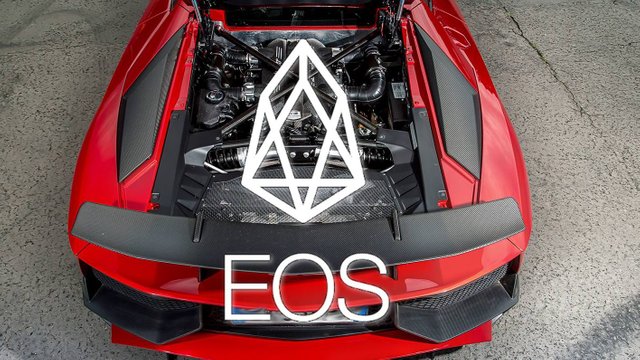EOS - The constitution has arrived!
It's Sunday and one of the brightest days for a long time, and although good advice from people on here, like @onetin84 i still can't help but writing about EOS and crypto. To me despite some issues it's just the most exciting and game changing project in the already exciting field of blockchain.
So let's get this done and then hit the beach (yes you can go for a swim in Vienna these days).
For a few days now, we have had the first set of articles of the constitution on EOSGo forum provided by Thomas Cox.
Apparently it's not finalised yet, Thomas has labeled it as V0.3. For the very least it is a good set set of draft articles. I will present the plain text of the constitution's articles, this way it should get easier to grasp the whole piece.
EOS - the blockchain constitution has arrived!

Check the links if you want to dig deeper, they include background thoughts and commentary to each article.
Article I: No user of this blockchain shall make knowingly false or misleading statements, nor profit thereby.
Article VI: No Member nor any Beneficial Interest shall own more than 10% of issued tokens.
A few thoughts
It'a apparent that most articles are quite fundamental and cover how business is to be done, it basically intends to put an end to code-is-law-nonsense and establish mechanisms to counter fraud, and any other blockchain-shortcomings. Interestingly the first article commands no lying, or even no misleading statements. To me this is very unique as in other codifications of law this is not included (except lying under oath), but here it covers day to day business. How will you decide upon what is misleading and what not. Will advertisment will be impossible?
Also strikingly not one article deals with the mechanics of the blockchain or its business logic. This has been quite prominent in @dan s first constitution example so why is it mmissing entirely now?
Here is my assumption: since with Dawn 3.0 it was announced that EOS business logic has been moved in a smart contract, it doesn't need to be reiterated here, changing EOS mechanic this way will be much easier, and probably be done by block producers and not by public voting.
Conclusion
If you are interested how the constitution is made to work on the blockchain take a look at one of my older articles As i have pointed out a few times already the constitution - if it proves to be operational - will be a huge feature of EO, that, if not alone for the performance, outdoes most blockchains. For example even if ETH manages to implement its 3.0 updates in reasonable amount of time, it still lacks explicit governance.
So who will choose to use ETH, no matter as user, investor or developer, if there's always the threat if there is one error or fraud, you will loose you tokens and UNDER NO CIRCUMSTANCES EVER will get them back. This is just a no go if you are intending to operate a reasonable business.
More than that, the constitution will not be static, it is designed to be updated and changed, so it gives EOS the capability to adapt in the future and stay up to date with to be expected competition.
Of course there is the threat that whales might successfully manipulate the constitution to more and more further themselves on the expense of everybody else.
Here the concept of inter-blockchain communication comes in, which allows easily setting up a new blockchain, with the same token (EOS) but likely with a different constitution, so there is a internal competition of constitutions imaginable, where the most successful set of rules will win (because that's where everyone will go). With such a high permeability ensured, it's easy to switch ecosystems, because you likely can take with you your money, your network and maybe even your reputation. So whales should have a hard time, unilateraly exploiting the system, as they require the minnows for their chain to be sustainable.
In many degrees an analogy between EOS and the ancient roman republic comes to my mind. It's not democratic, but it has a set of rulings, everyone else outside lacks. And by this it develops such an appeal to the whole world (inside and outside of the realm).

What is your view on the EOS constitution? Is it what you've expected? What do you miss? Any threats
The information provided here sums up the results of my own - finite - research. If you've found this piece interesting or useful, please up-vote and resteem and help spread the word. If you have spotted anything to add, please throw in your thoughts and comments! I am always happy to discuss and learn! Finally, none of this is financial advice, do you own research if you consider investing.

Great post. I agree, EOS is a game changer.
Release the Kraken! You got a 1.48% upvote from @seakraken courtesy of @conceptskip!
You got a 25.00% upvote from @sunrawhale courtesy of @conceptskip!
This service has been created with the help of @yabapmatt so please show your support by voting for him for witness!
This post has received a 4.26% upvote from @msp-bidbot thanks to: @conceptskip. Delegate SP to this public bot and get paid daily: 50SP, 100SP, 250SP, 500SP, 1000SP, 5000SP Don't delegate so much that you have less than 50SP left on your account.